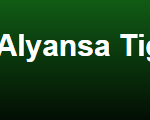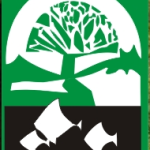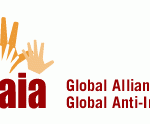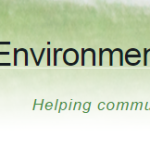La Iniciativa de Acceso se enorgullece de anunciar una búsqueda de Campeones de Escazú.

Alyansa Tigil Mina
Alyansa Tigil Mina (ATM) is a coalition of mining-affected communities and their support groups, including non-governmental organizations, faith-based groups, academic institutions, and other groups collectively challenging the promotion of destructive large-scale mining in the Philippines. ATM works to protect Filipino communities and natural resources that are threatened by large-scale mining operations. Human rights is a central basis for ATM's work, particularly in defending community and individual rights. The alliance aims to shift the policy framework on extracting minerals in the Philippines, from simply "extracting and profiting from mining minerals" to "mineral management towards national industrialization". ATM also believes this shift will drive local sustainable development, promote resilient communities and facilitate national industrialization.
- Address
-
Philippines
- nc@alyansatigilmina.net

Ateneo School of Government
The Ateneo School of Government or the ASoG started out as a unit under the Graduate School of Business in 1996 and was formally established as an autonomous academic unit in 2001. Since its beginnings, the ASoG has been faithful to its mission of working with effective and ethical public servants to build prosperous and just communities throughout the Philippines.
As a professional school for leadership and public service, the School creates an environment that fosters the development of new ideas and approaches, and makes possible a learning process that bridges the gap between classroom wisdom and real-world policy decision-making and governance The School's overarching vision is "transforming communities, building a nation" It follows a "mosaic" approach of
- Helping to build the country community by community, municipality by municipality, city by city, province by province, until the School establishes partnerships with 1,000 local government units (a critical mass of 60 percent of LGUs in the country);
- Linking islands of good governance - an explicit strategy to link effective and ethical leaders throughout the country; Stimulating public demand for reform - a demand-side strategy based on experiencing good governance at the local level;
- Encouraging the emergence of new national leaders by training and giving support to promising executives from local governments; and
- Working with national institutions and organizations to promote governance innovations at the national level that can have a direct impact on enabling local governments to create wealth and deliver basic services.
Working with national institutions and organizations to promote governance innovations at the national level that can have a direct impact on enabling local governments to create wealth and deliver basic services. The School draws from the intellectual resources of the Ateneo de Manila University, as well as from the Ateneos many years of social apostolate and interaction with the countrys decision-makers and basic sectors. In recent years, the ASoG also has become adept at regional-level work.
- Address
-
Philippines
- tonylavs@gmail.com

Conservation International- Phillippines
Conservation International- Phillippines (CI) is part of a global organization dedicated to protecting nature for the benefit of everyone on Earth. CI helps ensure that the integrity of ecological processes in very high biodiversity areas is preserved by working to create protected areas or networks of protected areas and ensure that the most effective governance and management systems are in place. CI is working to empower communities in rural, high biodiversity area so they can protect their own natural resources. CI is committed to helping societies adopt a more sustainable approach to development by helping reverse the degradation of Earths natural resources. CI accomplishes this with the help of their partners to demonstrate that protecting nature will ensure a better life for all Filipinos.
- Address
-
Philippines
- rboquiren@conservation.org

Ecological Society of the Philippines
The Ecological Society of the Philippines is a non-profit, non-governmental organization which collaborates with both the private and public sectors of Philippine Society for the institution, sponsorship, assistance, and financing of action programs, studies, and research pertaining to the conservation and protection of nature in all its forms. https://www.facebook.com/esp.org.ph
- Address
-
Philippines
- jamc@mozcom.com

Global Alliance for Incinerator Alternatives
The Global Alliance for Incinerator Alternatives (GAIA) is a worldwide alliance of more than 600 grassroots groups, non-governmental organizations, and individuals in over 82 countries with the aims of acheiving a just, toxic-free world without incineration. GAIA works both against incinerators and for safe, sustainable, and just alternatives.
- Address
-
Philippines
- paenglopez@no-burn.org

Haribon Foundation
The Haribon Foundation is a non-profit organization dedicated to protecting nature and preserving life. The foundation is committed to the conservation of nature through community empowerment and scientific excellence. The organization works to conserve natural sites and habitats, save endangered and threatened species, encourage sustainability,and empower people.
- Address
-
Philippines
- marivic.pajaro@gmail.com
Marinduque Council for Environmental Concerns
Marinduque Council for Environmental Concerns is a church-based non-governmental organization working on environmental justice, disaster risk reduction, climate change adaptation, social justice, and human rights issues.
- Address
-
Philippines
- myke_sacmarinduque@yahoo.com

Non-Timber Forest Products Task Force
The Non-Timber Forest Products- Task Force is a coalition of non-governmental organizations and people's organizations focused on the development of non-timber forest products (NTFPs) sustainable management of tropical forests. The Task Force helps empower forest-based communities by developing culturally appropriate, sustainable NTFP-based livelihoods and community-supportive resource management policies. The Task Force aims to advocate for a policy framework that supports and responds to sustainable community resource management practices and provide opportunities to increase income and social and environmental benefits of forest-based communities through sustainable livelihood initiatives. The Task Force also aims to establish a strong, sustainable, and viable network of community-based resource management practitioners and advocates cooperating towards forest conservation and sustainable livelihoods.
- Address
-
Philippines
- abi.aguilar@yahoo.com

The Center for Environmental ConcernsPhilippines
The Center for Environmental ConcernsPhilippines (CEC) is a non-governmental organization that helps Filipino communities address environmental challenges. It was founded in 1989 through the initiatives of organizations representing fisherfolk, farmers, indigenous peoples, women, urban poor, and professional sectors. CEC closely works with communities and organizations nationwide, supporting their initiatives to nurture their ecosystems, defend their common access to natural resources, and improve their living and working conditions within the context of a balanced and healthy environment. CEC advocates for people-oriented, patriotic, sustainable, and scientific national policies and programs for the protection of Philippine's natural environment. CEC engages with its global partners in information sharing, networking, and solidarity initiatives on common environmental issues and concerns.
- Address
-
Philippines
- rog@cecphils.org
Upholding Life And Nature
Upholding Life And Nature (ULAN) is an environmental human rights non-governmental organization working on issues such as climate change, forestry, and conservation.
- Address
-
N/AUsers ListN/AN/A
- malu.ulan@gmail.com